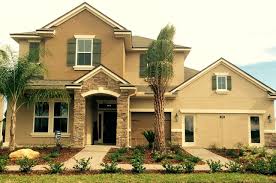Power Washing for Best Results
Most times, there are some places
too high to climb to wash and some dirt too tough to remove; that is when power
washing comes in. Power washing is the use of high-pressure water sprayed by a
machine to remove dust, loose paint, mud, grime, and dirt from the surfaces of
objects such as vehicles, buildings, and concrete surfaces. Power washing is
also referred to as pressure washing.
The mechanical pressure generated
is always expressed in liters or gallons per minute and it is designed with a
pump. In some cases, chemicals may be loaded into the machine for a cleaner and
effective washing.
Power washing is the first
essential step when preparing to paint or stain any part of a house. It is
crucial that the surface to be painted be totally clean to allow paint coating
to stick to the surface and prevent untimely peeling of coatings in small flakes
or big chunks. As a result, power washing is an indispensable step in
professional painting.
A Brief Overview of Power Washing
Power washing helps to clean and
prepare the surface to be painted by removing dust, mold, mildew, pollen, and
pollutants. For previously painted surfaces, power washing helps to remove
chalking from the surface to be painted. Chalking is the breaking down of the
paint’s skin surface due to exposure to sunlight ultraviolet rays and other
elements. So, it is important to get rid of the chalked materials from the
surface before painting.
Using the right pressure washing
machine will ensure that the exterior surface is properly prepared for coating
application. The nozzle of the pressure machine will ensure precision and that
the right trajectory of water for different surfaces. Meanwhile, it must be
professionally handled to prevent wand marks or etching of the surface usually
caused by application of the pressure at the wrong angle.
Power Washing the Exterior
In most cases, the exterior of a
building has dirt, dust, mildew, mold, and pollutants, which need to be removed
before painting starts. It is not strange to find cobwebs around the building’s
surfaces, cobwebs and spiders, and wasp nests will be washed away during powerwashing of the surface.
It is possible that some residues
are left on the surface; so, it is the painter’s duty to remove them manually
before any painting or waterproofing starts as power washing may not remove all
chips or peeling. Using too much pressure at a close proximity to the surface
may cause damage to the surface; so, the onus is on the professional painter to
apply discretion regarding the right angle and closeness to the surface.
Finally, the remaining chips on
the surface or floor can be removed by hand when they dry by scraping. After
power washing, it is necessary that the painter cleans the surrounding chips
and dirt cleaned from the surface through power washing.













Comments